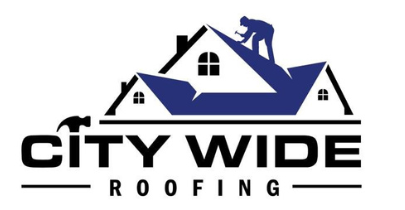Welcome to our article on “The Top 5 Things You Need to Know About Residential Roofing”! Let’s face it, roofs aren’t exactly the most exciting part of your home, but they play a crucial role in protecting your family and belongings from the elements. In this post, we’ll cover everything you need to know about residential roofing, from the common types of roofing materials to signs that it’s time for repairs or replacement. So buckle up and get ready to learn about the importance of a strong and reliable roof for your home sweet home!
Common Types of Residential Roofing
Are you in the market for a new residential roof but overwhelmed by all the options? Don’t worry, we’ve got you covered! When it comes to residential roofing materials, there are a few common types to choose from. You might be familiar with asphalt shingles, which are popular due to their affordability, easy installation, and range of colors and styles. But have you ever considered metal roofing? It’s becoming more and more popular thanks to its durability, energy efficiency, and sleek appearance. Tile roofing is a classic option that offers a unique and timeless look, but keep in mind that it may require a stronger structure to support the weight. Lastly, flat roofing is a common choice for commercial buildings but can also be found in some homes. As with any major decision, there are pros and cons to each type of roofing material, so be sure to consider factors like cost, durability, maintenance, and style when making your decision.
Signs You Need Residential Roofing Services
Here are some signs that it might be time to call in a residential roofing professional:
Leaks and water damage: If you notice any water stains on your ceilings or walls, it could be a sign of a leaky roof.
Damaged or missing shingles: If you see any shingles that are cracked, curled, or missing, it’s a sign that your roof might need repair or replacement.
Age of the roof: Most roofs have a lifespan of 15-25 years, depending on the material. If your roof is nearing the end of its expected lifespan, it might be time for an inspection or replacement.
Higher energy bills: If your energy bills have been steadily increasing, it could be a sign that your roof isn’t properly insulating your home.
Signs of pests or critters: If you notice any critters making their way into your home through your roof, it’s a clear sign that your roof needs attention. Don’t wait until it’s too late – call a professional to inspect your roof and determine the best course of action.
Tips For Residential Roofing Maintenance
Regular maintenance is key to ensuring the longevity and performance of your residential roof. Here are some tips for keeping your roof in top shape:
Regular inspections: It’s a good idea to have your roof inspected at least once a year by a professional to check for any damage or potential issues.
Cleaning gutters and downspouts: Clogged gutters and downspouts can cause water to back up and damage your roof, so it’s important to clean them out regularly.
Trimming trees and vegetation: Overhanging trees and branches can damage your roof and also provide a pathway for pests to make their way onto your roof. Make sure to trim any branches that are touching your roof.
Addressing issues promptly: If you notice any damage to your roof or signs of a leak, don’t wait to address it. Prompt repairs can prevent further damage and save you money in the long run.
By following these tips, you can help keep your roof in top condition and avoid costly repairs down the road.
Residential Roofing Installation and Replacement
Are you getting ready to install or replace your residential roof? It might seem like a daunting task, but with the right preparation and a trustworthy roofing contractor, the process can be smooth sailing. One of the biggest factors that can impact the cost of installation or replacement is the type of roofing material you choose. Asphalt shingles tend to be the most affordable, while tile and metal roofing can be pricier but offer additional benefits like durability and energy efficiency.
When choosing a roofing contractor, make sure to do your research and choose a company with a solid reputation and all the necessary licenses and insurance. During the installation or replacement process, expect some noise and disruption, but a good contractor will keep you informed every step of the way. Before the project starts, make sure to clear out any items from the work area and protect any fragile items in your home. With these tips in mind, you’ll be on your way to a beautiful and long-lasting new residential roof!
Don’t let a damaged or worn-down roof cause you stress – reach out to City Wide Roofing for all your residential roofing needs! Our team of experienced professionals is dedicated to providing top-quality service and ensuring that you’re completely satisfied with your new roof. From installation to repairs and maintenance, we’re here to help you every step of the way. Contact us today to schedule a consultation and get started on your roofing project!
From Maintenance to Repairs: How to Take Care of Your Residential Roofing


